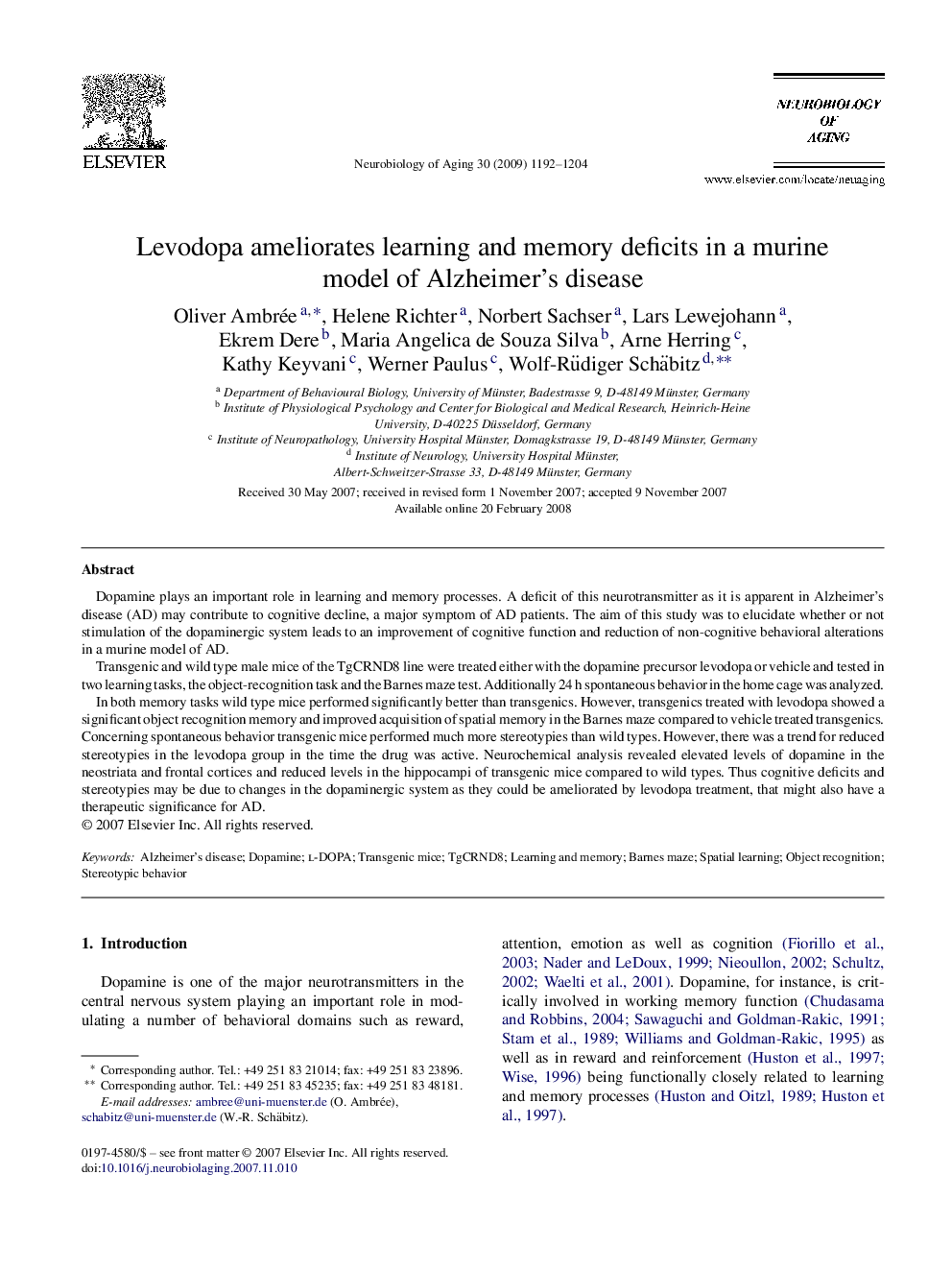| Article ID | Journal | Published Year | Pages | File Type |
|---|---|---|---|---|
| 329461 | Neurobiology of Aging | 2009 | 13 Pages |
Dopamine plays an important role in learning and memory processes. A deficit of this neurotransmitter as it is apparent in Alzheimer’s disease (AD) may contribute to cognitive decline, a major symptom of AD patients. The aim of this study was to elucidate whether or not stimulation of the dopaminergic system leads to an improvement of cognitive function and reduction of non-cognitive behavioral alterations in a murine model of AD.Transgenic and wild type male mice of the TgCRND8 line were treated either with the dopamine precursor levodopa or vehicle and tested in two learning tasks, the object-recognition task and the Barnes maze test. Additionally 24 h spontaneous behavior in the home cage was analyzed.In both memory tasks wild type mice performed significantly better than transgenics. However, transgenics treated with levodopa showed a significant object recognition memory and improved acquisition of spatial memory in the Barnes maze compared to vehicle treated transgenics. Concerning spontaneous behavior transgenic mice performed much more stereotypies than wild types. However, there was a trend for reduced stereotypies in the levodopa group in the time the drug was active. Neurochemical analysis revealed elevated levels of dopamine in the neostriata and frontal cortices and reduced levels in the hippocampi of transgenic mice compared to wild types. Thus cognitive deficits and stereotypies may be due to changes in the dopaminergic system as they could be ameliorated by levodopa treatment, that might also have a therapeutic significance for AD.
